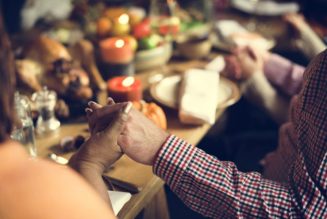So much of what it is to be human is at stake in how we eat. No wonder we need several arts and virtues really to do it well.
Thomas Aquinas has much to say about eating. A starting point is how the art of medicine, rightly understood and practiced, should have a key role in what we eat. “The regulation of food, in the point of quantity and quality, belongs to the art of medicine as regards the health of the body.” It seems that today in the weakening of the tie between the medical art and our diet both have been impoverished. Practitioners of medicine too often undervalue or sideline what should be central in their art: giving good direction regarding the ‘quantity and quality’ of what we eat.
A significant step in making our eating what it can and should be is to refocus on the obvious if also complex connection of good eating and good health. We might begin with some resolutions to reduce or cut out a whole class of foods that are regularly served up by an industry often more interested in sales than in health. This will include taking a critical look, for example, at how we do desserts and snacks, to name two obvious areas where the medical art can aid common sense in making some real changes. Another example is to look at what reliable medical science now says about the nutritional value of fats from naturally-raised animals versus long marketed ‘healthy, reduced-fat’ options.
After noting the importance of the medical art in relation to eating, Aquinas proceeds to discuss the cardinal virtue of temperance in its relation to eating. This specific virtue (which Aquinas, in a somewhat foreign terminology calls ‘abstinence’) considers eating not from the viewpoint of bodily health but from that of full-person health. Put otherwise, since bodily health is not the ultimate human good but rather should serve the fuller human flourishing, we need a virtue to govern our eating in view of that flourishing. We can say this virtue always asks: how should we eat so as best to grow in character and in our relationships with God and others.
Interestingly, (and this is where the name ‘abstinence’ comes from) this virtue will often call for a tightening of the belt, as it were, or a setting aside of food for the sake of higher goals. Among several reasons Aquinas gives for the salutary character of fasting, one in particular stands out: as a means to practice ‘bridling’ the desires of the flesh, and this especially as an aid to growing in chastity. What a gift this is, that a holistic approach to food offers an opportunity to ‘practice’ and grow in chastity, the formation of which is always challenging! Another reason he offers for spiritually-motivated fasting is to free the mind at certain times for contemplation. Here we sense the richness of how much is in play as we seek to ‘nourish’ ourselves as human persons!
We turn to another art that has an obvious role in our eating: the art of cooking. While this time-honored art might not get garner much philosophical reflection, it nonetheless has a key place in human life. Always first an art of the home and only by extension of ‘professionals,’ this is a significant way that human eating is distinct from that of other animals inasmuch as it applies reason to prepare food in view of nutrition and pleasure. Here is an art of many ‘satisfactions:’ satisfying complex nutritional needs, as well as the legitimate desire for food pleasing to the palate; and then there is the satisfaction for the cooks by their artistic fulfillment of those satisfactions! Rediscovering and cultivating this art is an opportunity to deepen the pleasures of eating, while improving our health and the communal life in our home.
Then there is one more virtue especially worth mentioning, since it ties all these strands together. Domestic prudence is the virtue by which those who run a household arrange all aspects of life in the home in view of the true flourishing of its members. Developing this virtue is the great shared project of husband and wife. It is how they, and any other household managers, concretely put first things first, and so put everything else in its right place in view of the end.
From this vantage, every aspect of eating in the home is subject to intentional reflection in view of the big picture. How we eat is a kind of scaffold of daily life, even as it provides the bodily health that is a scaffold for human living. There are so many essential issues to be considered and integrated: the importance of truly healthy food; the role of fasting; the place and indeed prioritizing of communal meals with traditions and manners; the exercise of the art of cooking, both as a form of shared work and as a means to serve people, both regular inhabitants and especially for hospitality to guests.
It is no wonder that eating calls for such an array of arts and virtues. Or rather, it is wonder-full, as we begin to recognize that already in the simple nutritional needs of our bodies, we find an invitation and an entre into a realm of endlessly rich human flourishing. Every day. ~ ~ ~
TODAY’S NEW PODCAST IS ON EATING! WHY GOOD FOOD MATTERS: EATING HEALTHY TO RENEW HOMELIFE Join Sofia and me in discussing this very practical issue that closely touches daily life in the home! Check out and share our other PODCASTS too.
Husband, father, and professor of Philosophy. LifeCraft springs from one conviction: there is an ancient wisdom about how to live the good life in our homes, with our families; and it is worth our time to hearken to it. Let’s rediscover it together. Learn more.



![Papal Power and the Obedience of the Faithful [Must Read]…](https://salvationprosperity.net/wp-content/uploads/2023/12/papal-power-and-the-obedience-of-the-faithful-must-read-327x219.jpg)





